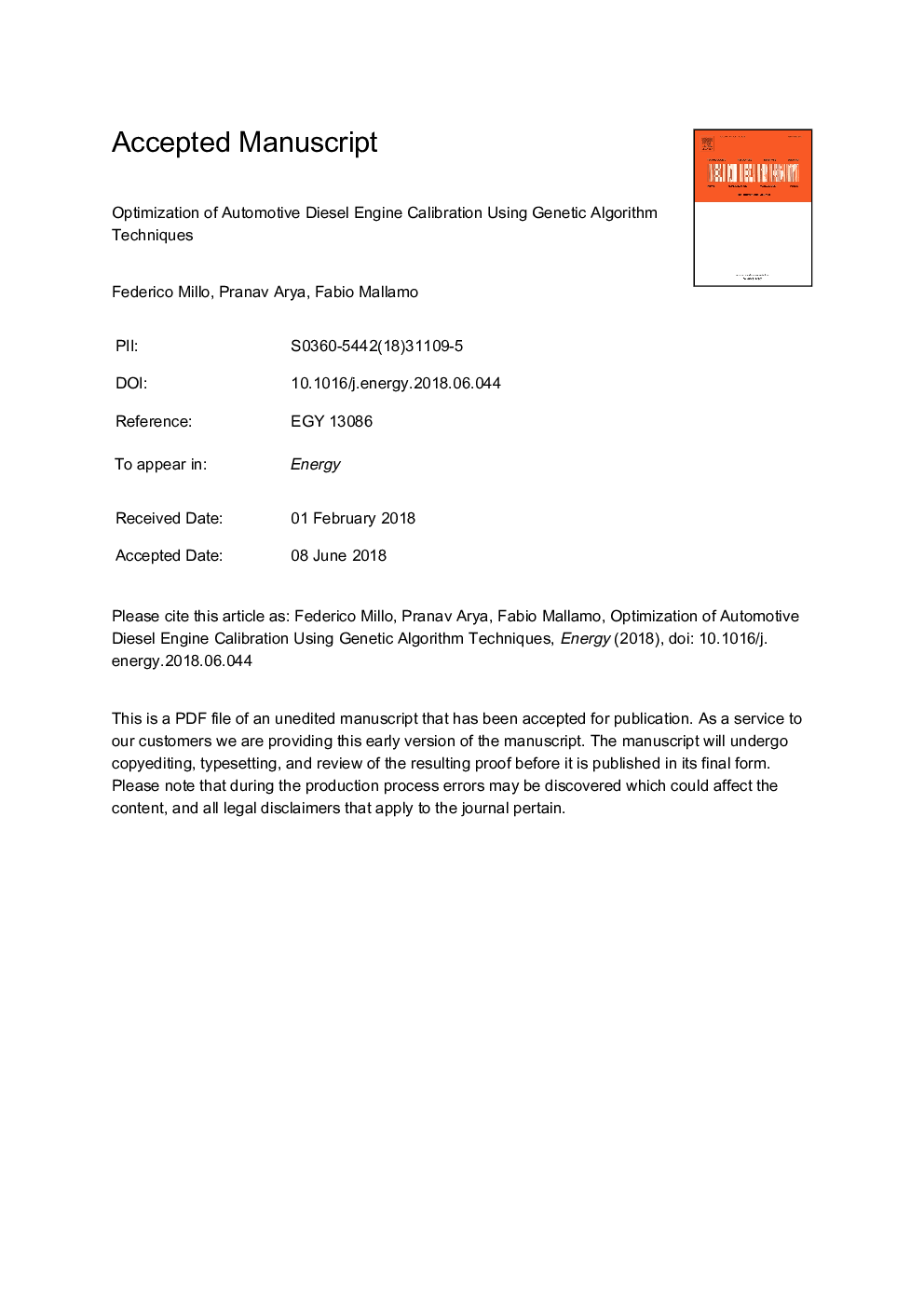| Article ID | Journal | Published Year | Pages | File Type |
|---|---|---|---|---|
| 8071251 | Energy | 2018 | 25 Pages |
Abstract
Random optimization methods along with surrogate models were firstly used to generate a population of engine calibrations, which then served as an initial population to a specifically conceived Genetic Algorithm (GA) based optimizer, which was finally applied on a real data set for a particular engine operating point. The results were compared with a calibration optimized using a traditional local approach method. A simultaneous reduction of about 20% in NOX and 1% in Brake Specific Fuel Consumption was achieved, with no significant increase in other emissions. The methodology described in the paper has the potential to reduce the calibration time and effort by half, while obtaining better calibrations.
Related Topics
Physical Sciences and Engineering
Energy
Energy (General)
Authors
Federico Millo, Pranav Arya, Fabio Mallamo,
